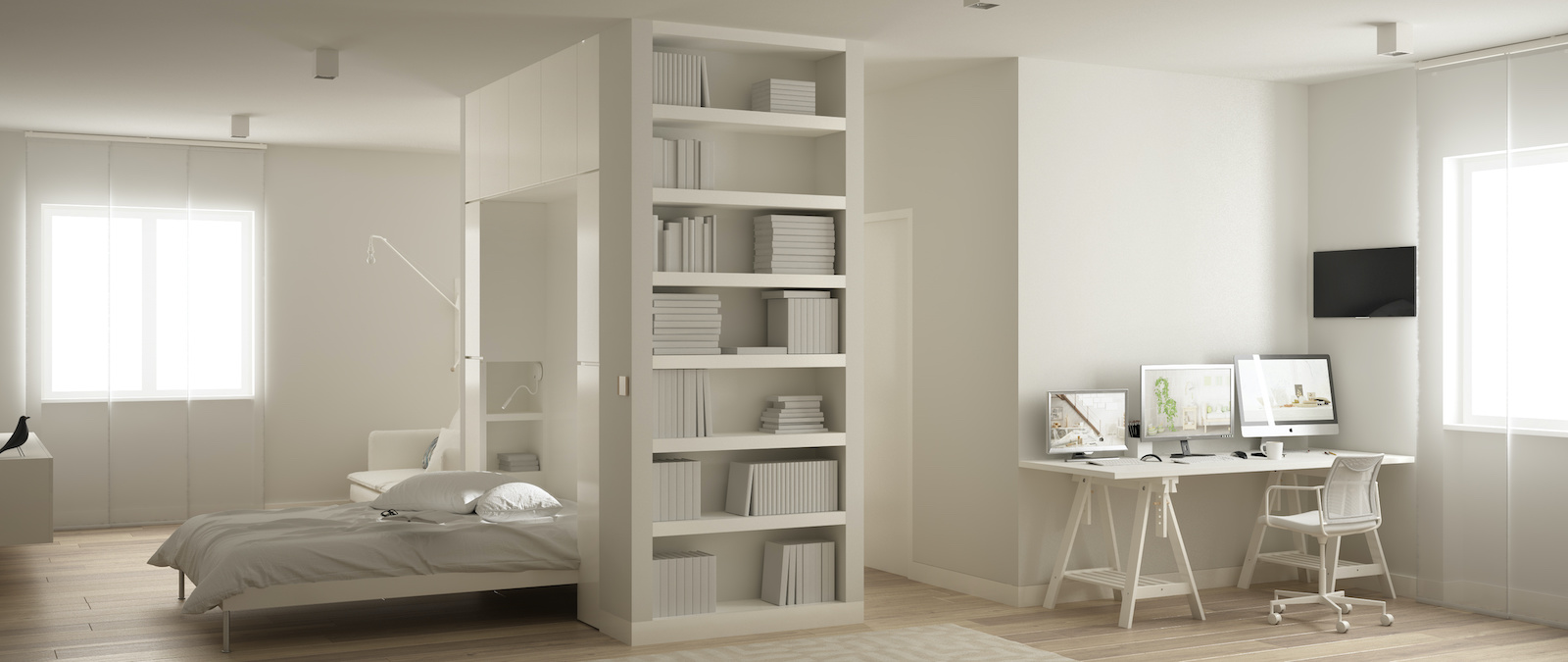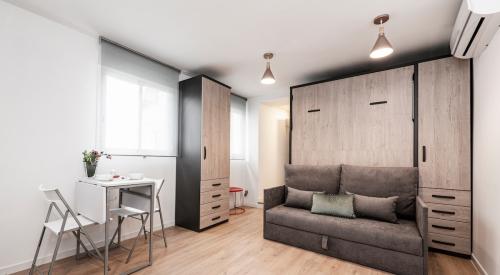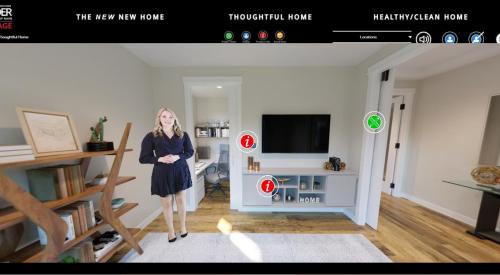The effects of the pandemic will long stay with the housing industry. One of those changes, a forced focus on technology, has already moved past the switch to virtual tours and manifested itself into new futuristic home products. New products include robotic furniture, healthier buildings, and transformed amenities. According to the New York Times, some of these may fade while others could potentially stick around and change the “stubbornly analog” housing industry for good. As space’s value has increased more than ever, a robotic furniture company named Ori debuted their pocket office: a cabinet that transforms into a desk with library shelves and storage with the touch of an app.
When sealed, it’s a sleek TV console with shelving and a Scandinavian aesthetic; when it opens, with the aid of a low-profile track system, it splits down the middle to create an office nook with a retractable desk on one wall and a bookcase and standing-desk setup on the other.
“People are expecting more from their space,” said Hasier Larrea, the company’s founder and chief executive, on a video call from his one-bedroom apartment in Williamsburg. “But square footage is the most expensive thing out there.”













